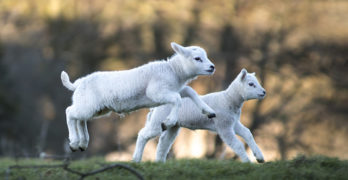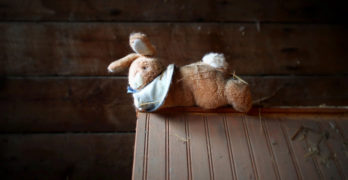Enjoy this poem selection from Ella Wheeler Wilcox and our best wishes for happy holidays and a warm and rich New Year.
By Heart: “Let Evening Come” + New Frost “Stopping by Woods” Challenge
The nights are short and sometimes the holidays are hard. Find comfort in this month’s By Heart column, in which we wrap up our memorization of Jane Kenyon’s “Let Evening Come.”
Book Club Announcement: Braiding Sweetgrass by Robin Wall Kimmerer
Join us on January 16 as we begin a new book club discussion over Robin Wall Kimmerer’s tender, awakening, ‘Braiding Sweetgrass.’
Dylan Thomas, Christmas, New Orleans, and Me
Reading “A Child’s Christmas in Wales” by Dylan Thomas evokes memories of Christmases in New Orleans with family, friends, and Cherry Bounce.
Literary Friends: Charles Dickens, John Forster, Jane Carlyle, and Me
“I’d decided going to graduate school was a mistake, and began to make plans to give up,” says Callie Feyen. “Enter Charles Dickens, John Forster, and Jane Carlyle.”
Children’s Book Club: ‘The Crossover’
Tis the season for basketball! Join us for a Children’s Book Club discussion of Kwame Alexander’s novel told through poems, ‘The Crossover.’
Wait, Do I Need to Write a Query Letter?
“I will write about feeling the pressure of cabbage, as a way to discuss writer’s block. It will be poetic and meandering. I’m thinking you’ll like it.” Join us for this exploration of whether (and how) you should write an article query.
Writing Toward Joy Workshop—Starts Monday!
Writing toward Joy is like writing toward North; we’ll never reach North, nor will we ever reach Joy, but when we write ourselves in that direction, a bit of Joy happens. Join us for this inspiring workshop!
Poetry Prompt: Poetry brings light to winter gray
What poems bring light to the darkening days of winter? In this week’s poetry prompt Callie Feyen guides us down the gray highway to find beauty.
Reader, Come Home: November’s Pages
Come learn the secrets of being a deep reader with Megan Willome. And share your November pages for our monthy Reader, Come Home column.
Literary Friends: Keeping Anna Akhmatova Alive
Anna Akhmatova’s friends memorized her poems to keep her work alive when it was too dangerous to put pen to paper. Sandra Heska King spotlights this life and death role of literary friends.
Read Like a Writer: Second Person Narrative Voice in Claudia Rankine’s “Citizen: An American Lyric”
Charlotte Donlon explores use of the second person narrative voice through the work of Claudia Rankine— and helps writers discover something surprising that’s within their power to do.
Poetry Prompt: Thankful Acrostics When Poetry Feels Like It’s Gone
Callie Feyen believed she’d lost the poetry of teaching, but Megan Willome showed her that poetry (and teaching) hadn’t lost *her.*
By Heart: “Peace” by Sara Teasdale + New Kenyon “Let Evening Come” Challenge
Looking for peace? Find it in this month’s By Heart column, in which we wrap up our memorization of Sara Teasdale’s “Peace” and learn some surprising memory techniques.
From the Poet: Blue of the Heaps of Beads
“I always come back to the love poem, and I always come back to the Ozarks,” says Dave Malone. Enjoy this excerpt from his collection, O: Love Poems from the Ozarks.
8 Ways Writers Can Enrich Each Other’s Work
Bethany Rohde shares 8 ways that writers can encourage one another—from dealing with ideas that feel question-marky to fending off the censor bullies—served up with warm wit and warm cookies.
Cross-Generational Friendships: Where’s My Daughter? Call Her Forth
One glimmering night, three generations, and a whole lot of love—with a little Shakespeare to flavor the memory. From author Callie Feyen.
Thanksgiving—Poem by James Whitcomb Riley
May we share love’s touch with another during this Thanksgiving season, even one whose “need of touches we had never known.”
Memories Poetry Prompt: Something Lost
Is there something you remember that you wish you could return to? Join Callie Feyen in stirring your memories of lost things you wish you could find again—and put them in a poem!
A Story in Every Soul: Bedtime Stories
When we read a bedtime story to a child, something happens in their soul. What exactly? Well, it depends on the story.



















